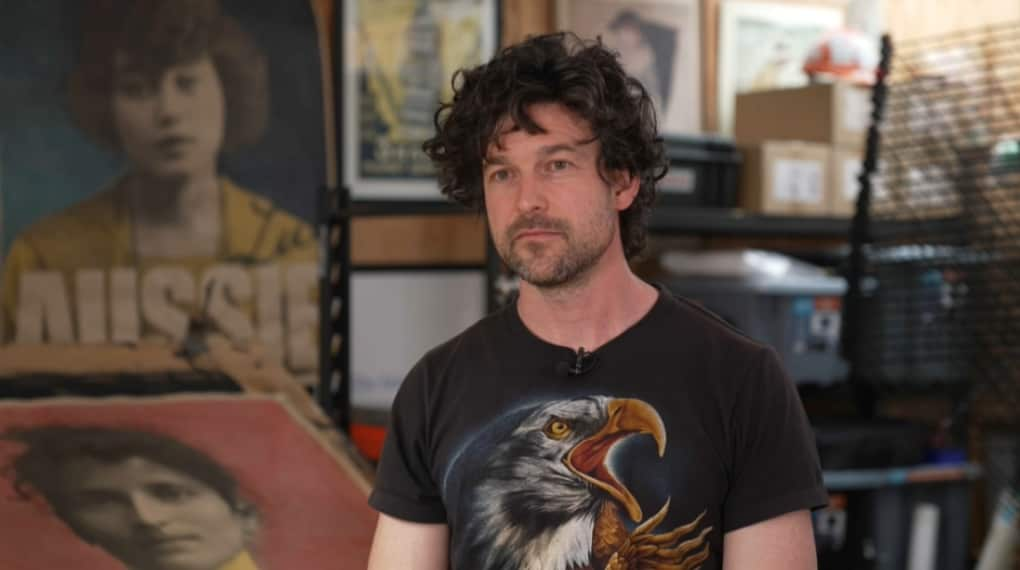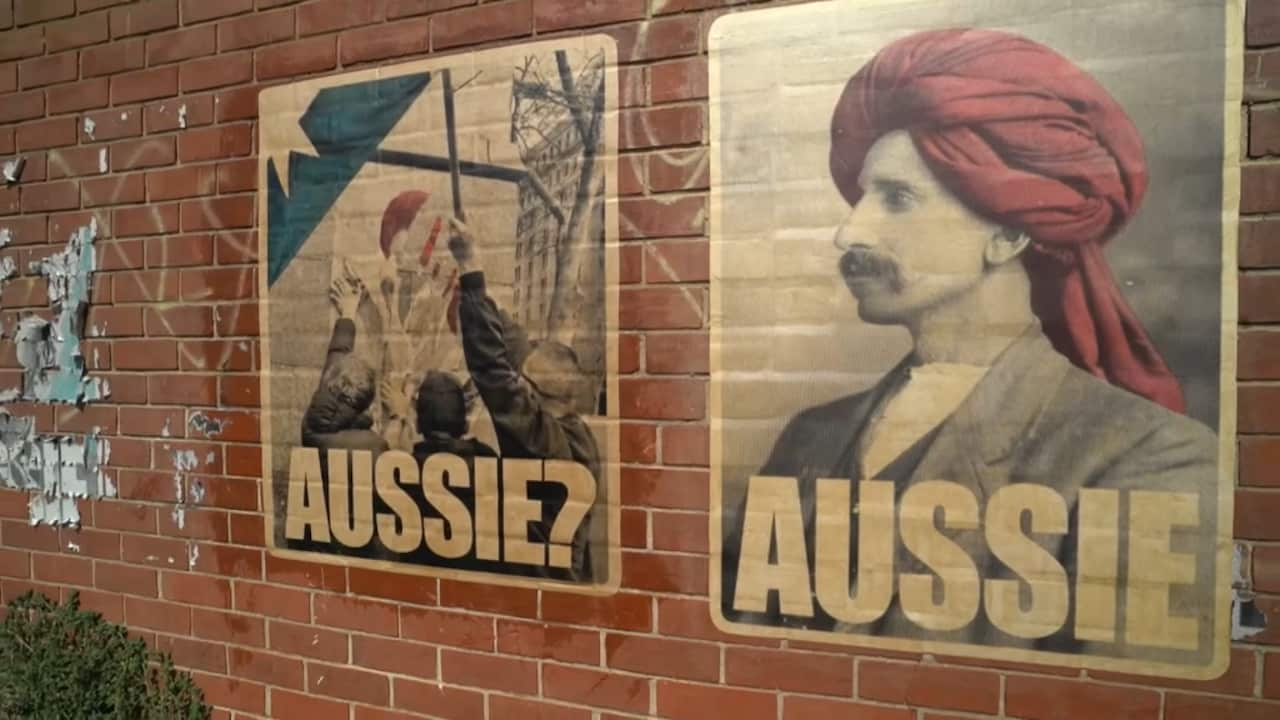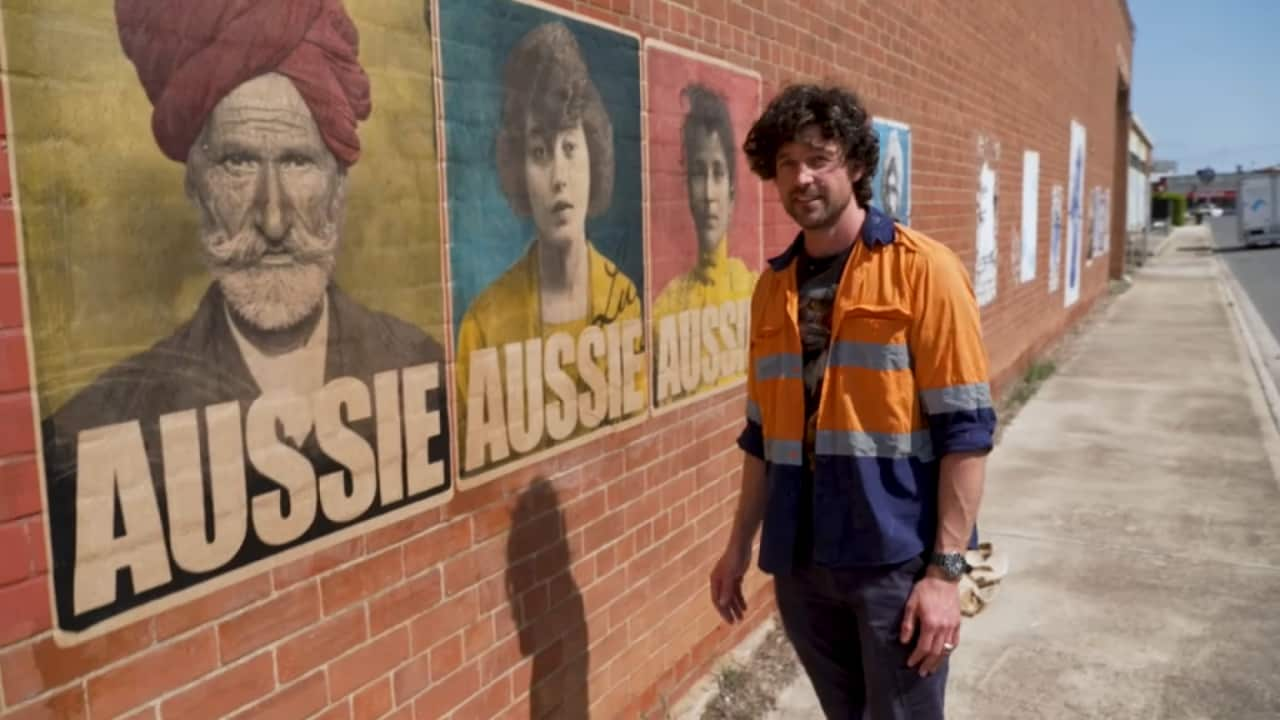Nearly a decade ago, posters began popping up in cities around the country with a striking image of a Muslim cameleer and the caption "Aussie" — provoking conversations at a time when racial tensions were high.
The artist, Peter Drew, wanted to challenge what it means to be, and who exactly is, Australian.
Today, against a backdrop of anti-immigration protests and sentiment across the country, his message has renewed relevance.
He says it's time to strike up another conversation, as he reprises the project for its tenth anniversary with at least six new profiles.

"I want to reach out to the people who are afraid of people that don't look like them, because that's sort of a part of being human," he told SBS News.
"But also, I hope that the posters make new arrivals in Australia feel welcome and that they can belong here as much as I do."
'One of the great ironies of history'
Since 2016, the Adelaide artist has plastered thousands of posters across Australian cities, using images of people who applied for exemptions to the White Australia policy — a series of laws that restricted non-European immigration to Australia between 1901 and the 1970s.
"Because of that racist policy, we now have all these amazing photographs in the National Archive of just how diverse Australia was at the time," Drew reflected. "And I think it's just one of those great ironies of history."
He knew the posters would be liked and disliked in equal measure, but had no idea he'd still be doing the project a decade on.
Defining patriotism
In August, thousands of people attended rallies across the country under a call to end perceived "mass migration" to Australia, singling out the Indian community in particular and championing a message to "take back" the country.
Further marches followed last weekend.
The people protesting immigration claim to be doing it "for Australia", but in Drew's eyes, they've got it all wrong.
"They claim to be the patriots, whereas I think I’m the patriot, and I think that immigrants that are coming to Australia — they also love Australia."
When protesters at one of the rallies in Adelaide in August tore down his posters, Drew used it as inspiration for a new piece of art depicting the moment.

"Aussie?" the label underneath reads.
Drew said the protesters should reflect on their actions and ask themselves: "Are we being Aussie? Is this sort of behaviour really strong, or is this a weak thing to do?"
A far-reaching message
Drew managed to reach the NSW parliament with his art. Last month, Nationals MP Gurmesh Singh told the chamber he had contacted Drew after seeing one of his posters in Sydney.
The politician was inspired to look into the archives and found an ancestor, an Indian farmer who settled on the mid north coast in the late 1800s.
"The earliest photograph of my great-grandfather that we could find was his certificate exempting him from a [White Australia] dictation test," Singh said.
"He'd already been in the country about 25 years at this point."
Singh celebrated the recognition of Australia's multicultural history across its city streets, but said he was distressed to see the posters being torn down.
"Incidents like this do make people feel unsafe, and I'll admit it made me second-guess my thoughts on my own safety," he said, noting the anxiety currently being felt by many Indian Australian communities.
For Drew, the exchange with Singh was a powerful example of exactly what he's trying to achieve.
"When I saw him speaking in Parliament and telling his entire story, I was really taken aback, because I just thought it was fantastic," he said.
"And him being a member of the Nationals as well, being from that side of politics, I think is really powerful."
For the latest from SBS News, download our app and subscribe to our newsletter.

